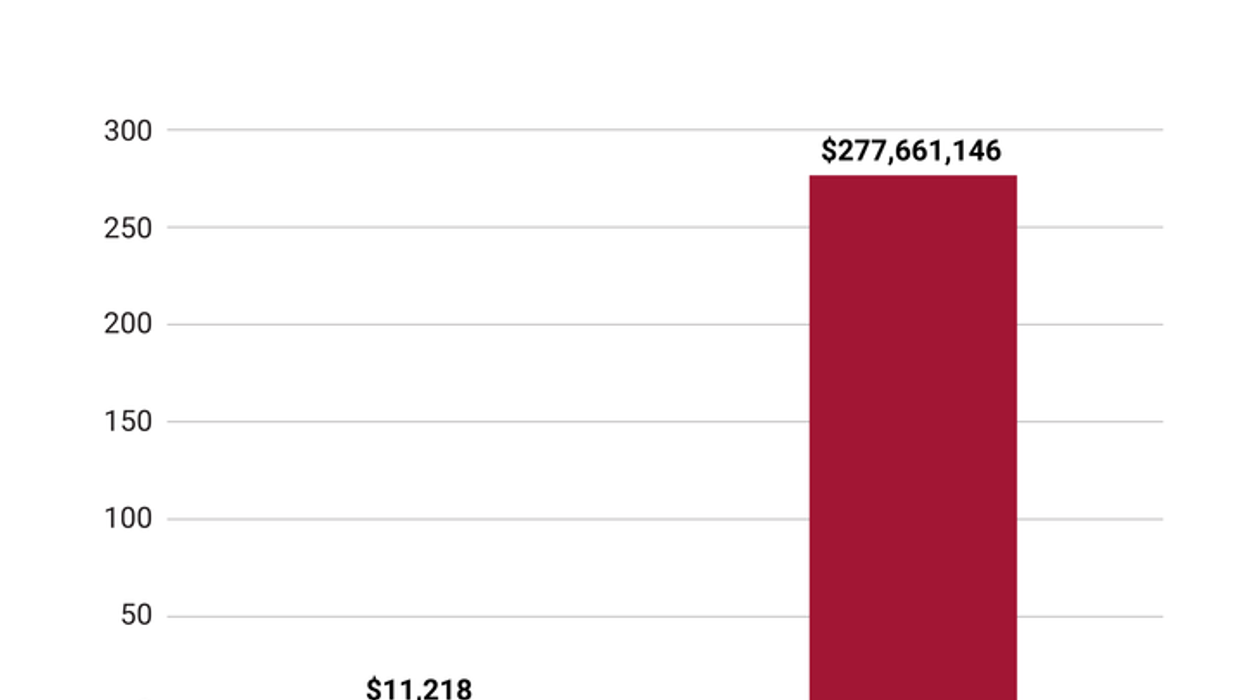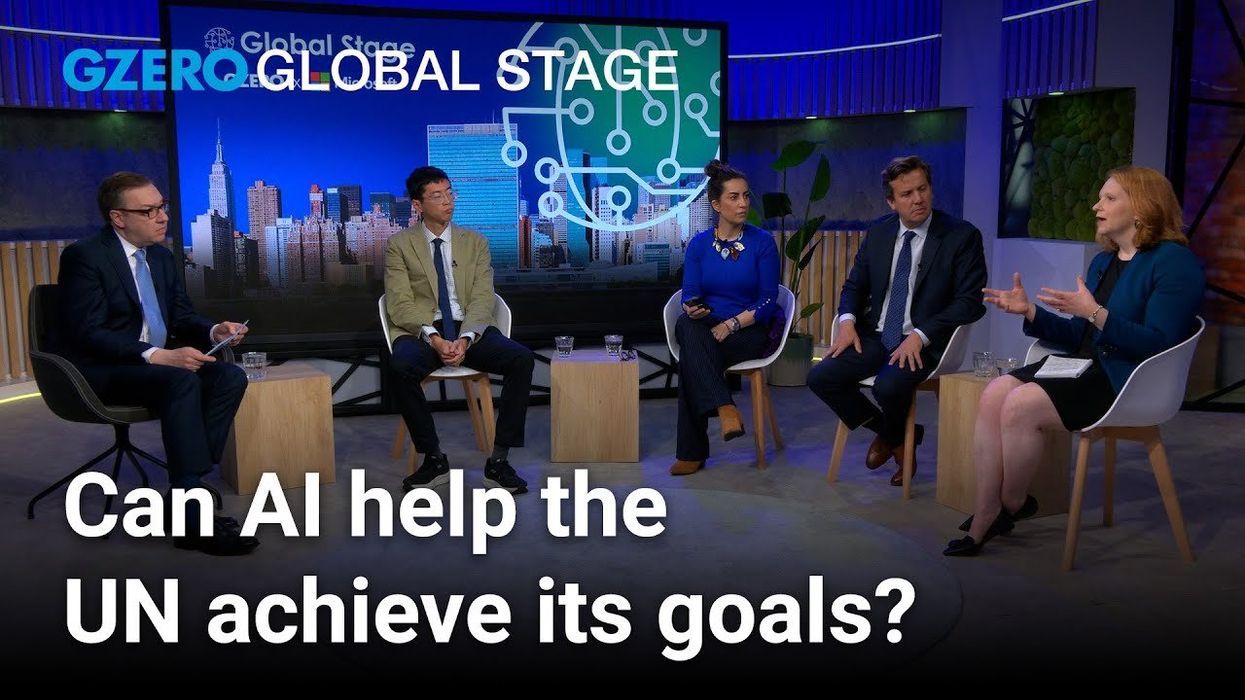Trending Now
We have updated our Privacy Policy and Terms of Use for Eurasia Group and its affiliates, including GZERO Media, to clarify the types of data we collect, how we collect it, how we use data and with whom we share data. By using our website you consent to our Terms and Conditions and Privacy Policy, including the transfer of your personal data to the United States from your country of residence, and our use of cookies described in our Cookie Policy.
Iran was the clear loser of its war with Israel and the US. So, what happens next?
In the latest episode of GZERO World, Ian Bremmer sits down with seasoned New York Times columnist Thomas Friedman to unpack the geopolitical fallout from Iran’s stunning defeat in a 12-day war against Israel and the US—and what it means for Gaza, Trump, and the region’s future.
President Trump takes on the Judiciary
New York Times Magazine staff writer and Yale Law School fellow Emily Bazelon joins Ian Bremmer to break down the state of the US judiciary in Trump’s second term.
What's next for Iran, with Thomas L. Friedman
On the latest episode of the GZERO World podcast, Ian Bremmer sits down with New York Times columnist Thomas L Friedman to unpack Iran’s stunning defeat and what it means for Netanyahu, Trump, and the path forward in Gaza.
Listen: On the latest episode of the GZERO World podcast, Ian Bremmer sits down with New York Times columnist Thomas L. Friedman to dissect what may go down as the most consequential month in the Middle East in years. Just weeks after Israel launched a war against Iran—and after President Trump authorized US airstrikes—an uneasy ceasefire is in place. But what was actually achieved?
Iran, the clear loser of the 12-Day War, entered as the most vulnerable player and emerged weaker still. Tehran stood largely alone, with Hamas degraded, Hezbollah decimated, Syria toppled, and Russia distracted. Yet the Islamic Republic can still claim regime survival, some damage inflicted on Israel, and a murkily intact nuclear program.
Netanyahu, meanwhile, avoided a ceasefire until he had secured key gains: he crippled Iran’s infrastructure, leveraged US firepower to hit targets beyond Israel’s reach, and rescued his collapsing political career. As Friedman notes, “The people who won this war for Israel...were, for the most part, the very same people who were in the streets of Israel for nine months against Netanyahu and his judicial coup.” That tension will only grow in the months ahead.
Subscribe to the GZERO World Podcast on Apple Podcasts, Spotify, Stitcher, or your preferred podcast platform, to receive new episodes as soon as they're publishedWhere middle class growth and small business meet
Small businesses are more than just corner shops and local services. They’re a driving force of economic growth, making up 90% of all businesses globally. As the global middle class rapidly expands, new opportunities are emerging for entrepreneurs to launch and grow small businesses.
American President Donald Trump's X Page is seen displayed on a smartphone with a Tiktok logo in the background
Where we get our news - and why it changes everything
In August 1991, a handful of high-ranking Soviet officials launched a military coup to halt what they believed (correctly) was the steady disintegration of the Soviet Union. Their first step was to seize control of the flow of information across the USSR by ordering state television to begin broadcasting a Bolshoi Theatre production of Swan Lake on a continuous loop until further notice.
Your new neighbor? A friendly robot
Is the age of humanoid robots here? What makes them different from industrial robots? AI is unlocking a new era of machines, and the robot next door is closer than you think.
Humanoid robots are on the rise. Subscribe to Bank of America Institute to see what's next.
Think you know what's going on around the world? Here's your chance to prove it.
You vs. the News: A Weekly News Quiz
Think you know what's going on around the world? Here's your chance to prove it.
WHAT.
GZERO Media is a company dedicated to providing the public with intelligent and engaging coverage of global affairs. It was created in 2017 as a subsidiary of Eurasia Group, the world's leading political risk analysis firm.
WHY.
Interest in global affairs is soaring these days, and yet traditional sources of insight are either too politicized, too polarizing, or too boring.
We believe there's a better way to help people understand the forces that are reshaping their world. By delivering deep insight with a light touch. By taking a global view. By pushing beyond predictable opinions and formats to inform, engage, challenge, and entertain.
HOW.
Our approach is at once journalistic, analytical, and creative. We not only explain the most important stories in the world today — we tease out the critical connections between them, so you can be smart about what comes next.
Whether you get the daily dish on global affairs from our GZERO Daily newsletter, see global leaders in a different light on GZERO World with Ian Bremmer, or get your fix of laughter and outrage from our political satire show PUPPET REGIME, we hope that you come away with a broader and deeper understanding of the world.
WHAT'S BEHIND OUR NAME?
For decades, a small number of leading countries regularly came together – in formats like the Group of Seven (G7) or the wider Group of 20 (G20) – to seek collective solutions to the world's most pressing challenges. What's more, the United States used its power, for better or worse, as a kind of "G1" to underwrite global norms of global commerce, finance, and security.
Today, that order is slipping away. No single power or group of powers is willing or able to set a global agenda. It's a world of many pretenders, but no leaders. Welcome to the GZERO.
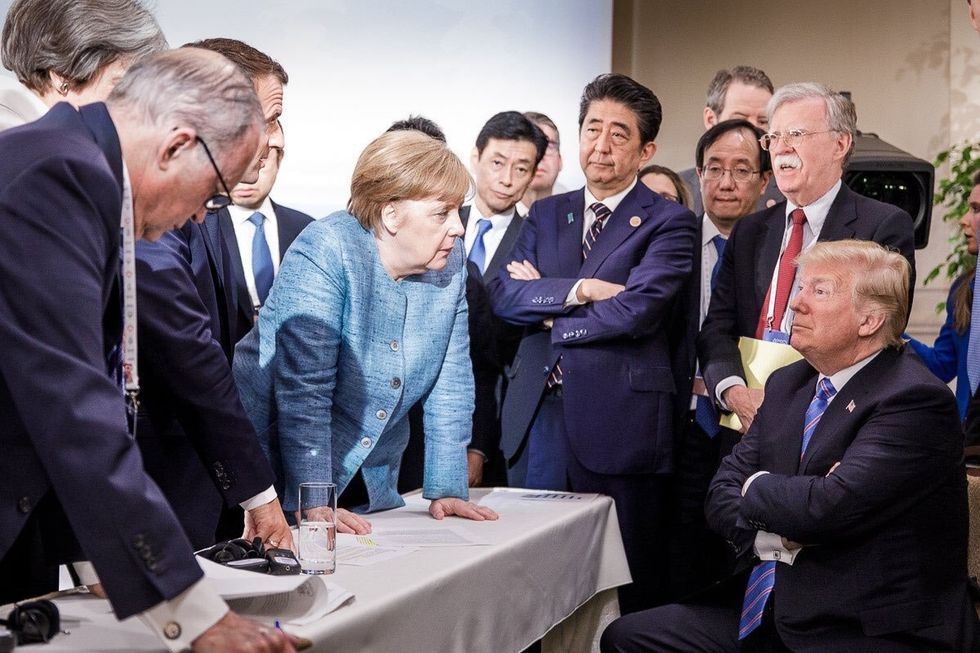
President Donald Trump seated surrounded by foreign leaders including Germany's Angela Merkel, Japan's Shinzo Abe and France's Emmanuel Macron
Getty Images
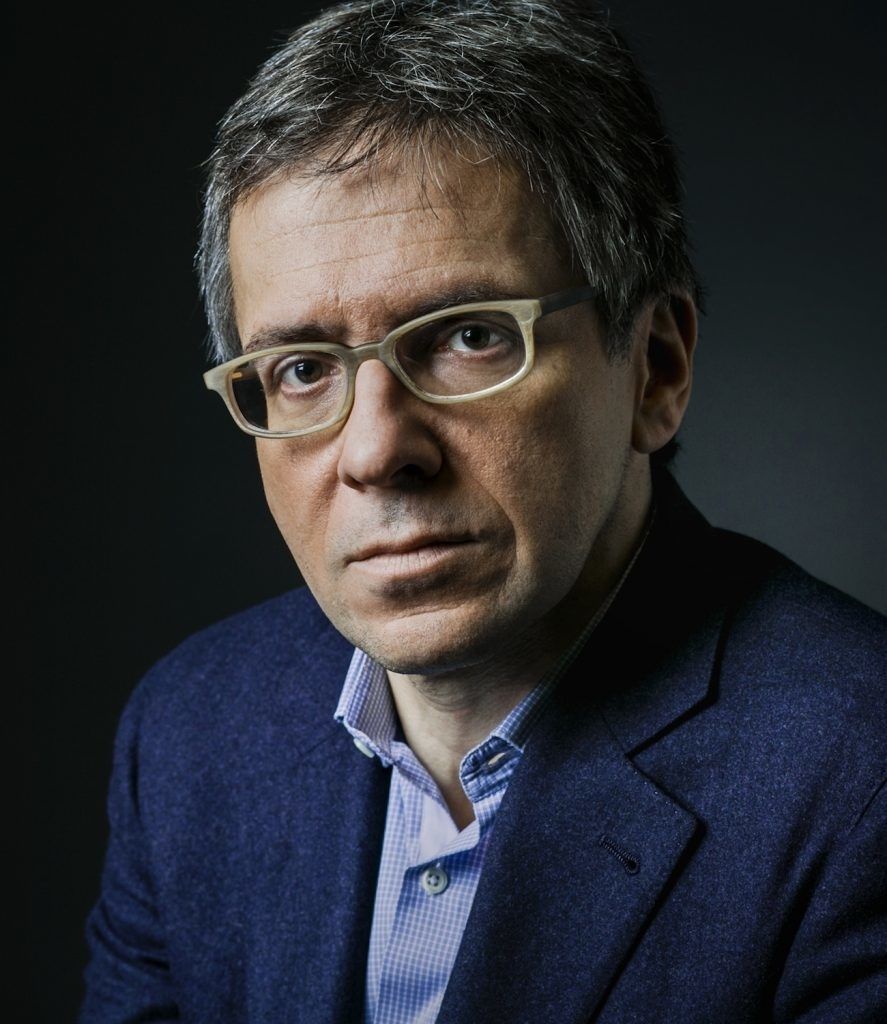
Ian Bremmer
Ian Bremmer is President and Founder of GZERO Media. He hosts the weekly digital and broadcast show, GZERO World with Ian Bremmer, where he explains the key global stories of the moment, sits down for an in-depth conversation with the newsmakers and thought leaders shaping our world, and takes your questions.
Ian is also the President and Founder of GZERO Media's parent company, Eurasia Group, the leading global political risk research and consulting firm. Ian is a New York Times bestselling author of eleven books including "Us vs Them: The Failure of Globalism," "Every Nation for Itself: Winners and Losers in a G-Zero World," "The End of the Free Market: Who Wins the War Between States and Corporations?" and "Superpower: Three Choices for America's Role in the World." His latest book, "The Power of Crisis," draws lessons from global challenges of the past 100 years—including the pandemic—to show how we can respond to three great crises unfolding over the next decade.
Ian earned a master's degree and a doctorate in political science from Stanford University, where he went on to become the youngest-ever national fellow at the Hoover Institution. Although he might not admit it, Ian's secretly jealous of his puppet's interviews with the world's most powerful leaders.
Justin Kosslyn
Justin Kosslyn is Interim Publisher at GZERO Media and a Special Advisor at Eurasia Group. Previously, he was the Director of Product Management for Google's News Ecosystem, overseeing products such as Google Trends, Search Console, Reader Revenue Manager, Site Kit, Pinpoint, and R&D efforts in Generative AI.
Before that, Justin was Head of Digital Products at TED, the organization behind TED Talks. He also spent a decade at Google Jigsaw, where he led teams developing software tools to enhance digital and information security. His work included managing Google's warnings for government-backed cyberattack targets and developing ClaimReview, a fact-checking tool now widely used across major tech platforms.
Justin graduated from Yale University with a BS in Computer Science. He lives in New York with his wife and two children.
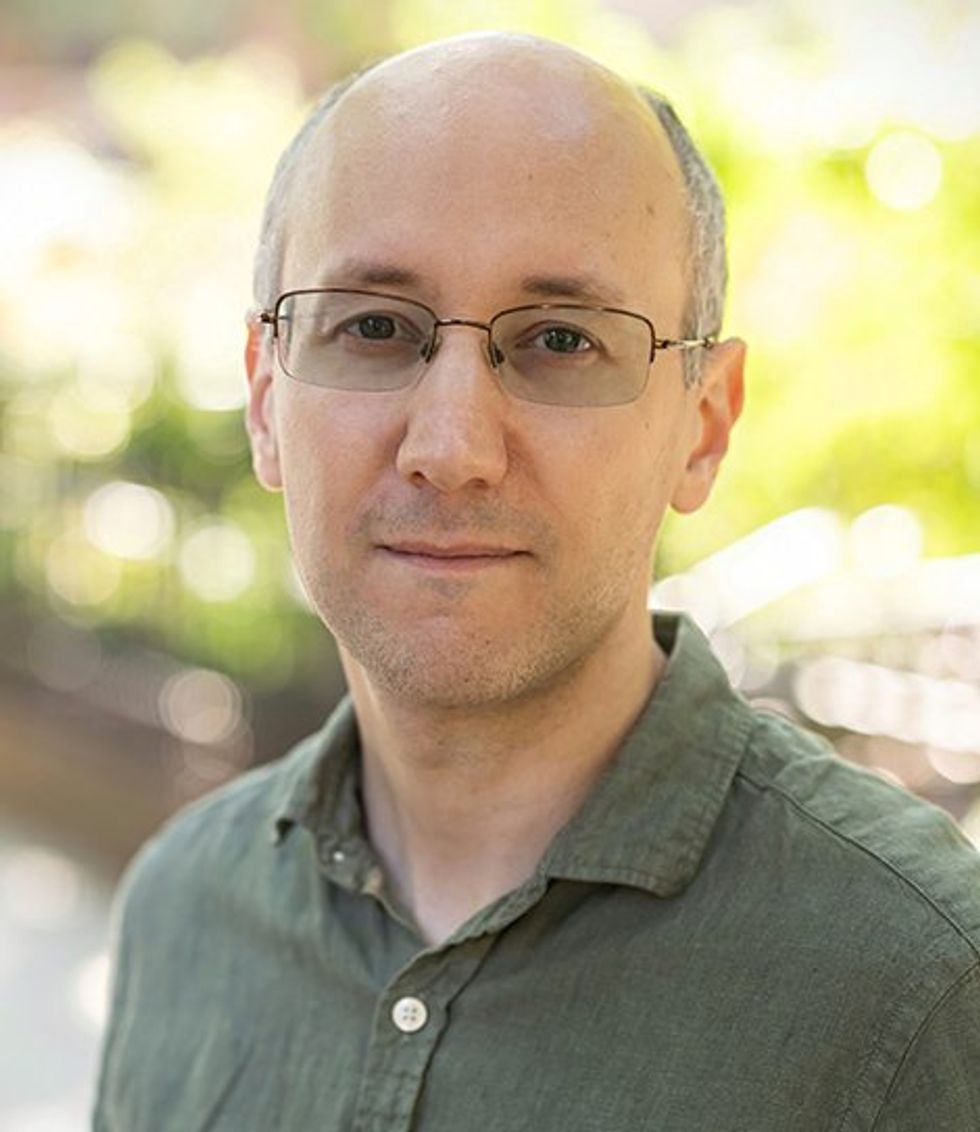
Join us for more Global Stage events
From Davos and the Munich Security Forum to the UN General Assembly, our livestream discussions convene heads of state, business leaders, technology experts from around the world for critical debate about the geopolitical and technology trends shaping our world.
AI trends in 2025 that drive progress on global goals
As the 10th annual UN Science, Technology, and Innovation Forum gets under way in New York, GZERO Media’s Global Stage series presents a timely conversation about the promise and peril of artificial intelligence in achieving the Sustainable Development Goals.



























